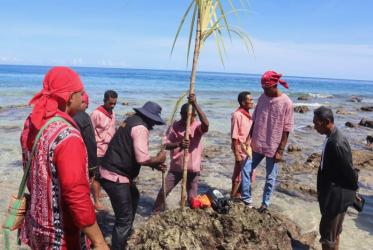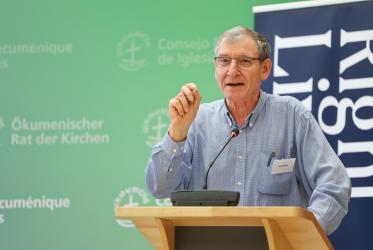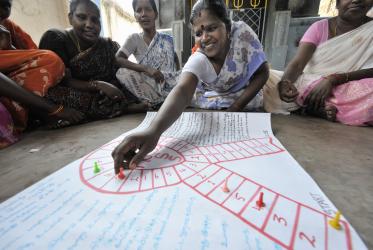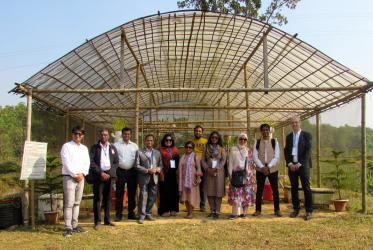Displaying 1 - 20 of 41
Unity is key when health crisis poses new challenges in Asia
28 February 2022
Climate crisis fuels existing water injustice
27 October 2021
Churches should use their voice on climate change
26 February 2020
CCIA meets in Brisbane with focus on Pacific regional priorities
19 February 2020
Church response to Australian bushfires hinges on preparation
07 January 2020
“Economy of life” lifted up at special school in Indonesia
22 August 2019
WCC condemns massacre of farmers in Philippines
12 April 2019
Workshop in Bangladesh links climate, economic justice
07 February 2019
All pilgrim routes lead to COP24
11 December 2018
#WCC70: A prayer about health and healing
20 July 2018











